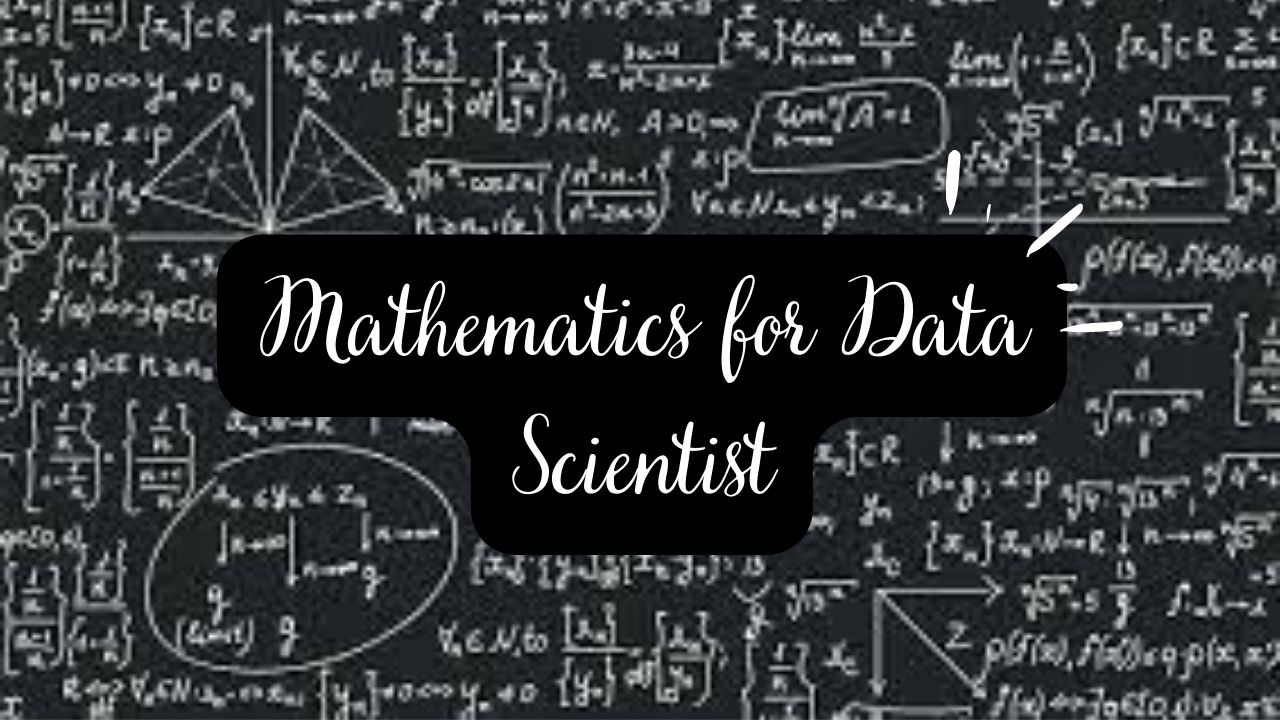
Mathematics for Data Scientist#
To excel in the field of data science, especially as a data scientist, I would recommend you have good command over the topics mentioned below. These are the topics from mathematics and statistics. There are many YouTube channels that you can use for this purpose. Because this is 10+2 level mathematics, and it is just a matter of revision. So I am not offering any course unless there is a specific need for some group, organization.
Linear Algebra#
- Introduction to Linear Algebra
- Eigenvalues And Eigenvectors
- Calculating Eigenvalues and Eigenvectors
- Eigen decomposition of a Matrix
- Eigenvectors: What Are They? Intuition behind.
Vectors, Matrices & Linear Transformations#
** Vector & Vector Spaces **
- Vectors: The Basics
- Basis Vector
- Norm of a vector
- Identity matrix or operator
- Determinant of a matrix
- Column and Null Space
- Rank of a matrix
- Transpose of a matrix
- Inverse of a matrix
- Least Squares Approximation
- Linear Transformations
- Matrices: The Basics
- Matrix Operations
- Matrix operations and manipulations
- Dot product of two vectors
- Linear independence of vectors
Multivariable Calculus#
- Critical Points, Maxima and Minima
- Differentiation
- Functions and Derivatives
- Functions: Primer
- Multivariable Functions
- Partial Derivatives
- Taylor Series and Linearization
- The Hessian
- The Jacobian
- Vector-Valued Functions
Probability#
- Introduction to probability – probability, events, additive & multiplicative rule
- Basics of probability – random variables, probability distribution, expected value
- Joint and Conditional Probability
- Probability Rules
- Bayes’ Theorem
Statististics#
- Descriptive statistics
- Inferential Statistics
- Prescriptive statistics
- What is sampling, different sampling techniques?
- Random Variable, Predictor, Predicted variables
- Data Distribution (continuous, discrete, Normal/Bernoulli, standard, binomial, Poisson, etc.)
- CDF (Cumulative Distribution Function), PDF (Probability Distribution Function)
- Statistical Measures (mean, mode, median, max, min)
- Measure of dispersion (range, standard deviation, variance, covariance, correlation, error deviation)
- Central Limit Theorem (CLT)
- What is Regression? How it works? OLS (Ordinary Least Square), Multi-linear regression.
- Standard Error
- Dimensionality Reduction (PCA)
- Parameter Properties (Bias, Consistency, Efficiency)
- Statistical tests t-test, z-test, ANOVA test, Chi-Square test
- Conditional Probability (Bayesian Theorem)
- Type I/Type II errors
- Hypothesis testing
- Confidence Interval & Significance Level (alpha)
- p-value and its interpretation


Comments: